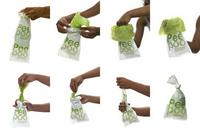-
U.S. files trade charges against China over rare minerals

China mines and sells about 97 percent of the world’s rare Earth elements – seventeen metals used in cell phones, advanced batteries, wind turbines, and more; the Chinese, in violation of WTO rules, have manipulated the export of these minerals in order to weaken the techno logy sectors of other countries, and punish countries over political disputes
-
-
Solving antibiotic resistance in humans -- and premature bee death
The stomachs of wild honey bees are full of healthy lactic acid bacteria that can fight bacterial infections in both bees and humans; the finding is a step toward solving the problems of both bee deaths and antibiotic resistance in humans
-
-
Millions of Americans at risk of flooding as sea levels rise
Nearly four million Americans, residing in a combined area larger than the state of Maryland, find themselves at risk of severe flooding as sea levels rise in the coming century, new research suggests; in terms of population, Florida is the most vulnerable, closely followed by Louisiana, California, New York, and New Jersey
-
-
iPads allow judges to sign warrants anywhere
Getting local judges to sign last minute warrants just got a lot easier with iPads
-
-
Rethinking the toilet model in developing countries

More than 2.6 billion people around the world lack access to basic sanitation, and more than 40 percent of the world’s population lack access to even the simplest latrine; the lack of sanitation creates serious problems, including environmental pollution, unsafe surroundings, and increasing the outbreak of lethal epidemic diseases such as cholera; Swedish company offers a solution
-
-
Molecule may aid nuclear waste clean-up
Scientists have produced a previously unseen uranium molecule in a move that could improve clean-up of nuclear waste
-
-
NCAA tournament math: an alternative selection method
Researchers propose a math-based method for placing teams in the NCAA March Madness tournament – a method which will reduce team-travel distances in early rounds and which could reduce travel costs by $1 million while increasing attendance in the games
-
-
New material for sustainable road building: "poticrete"
An organization dedicated to promoting sustainable roadway construction, awarded its first official certification to a Bellingham, Washington, project that incorporates porcelain from recycled toilets; a newly widened sidewalk in Bellingham incorporates more than 400 recycled toilets, crushed into what the project engineers have dubbed “poticrete”
-
-
The bioterrorism threat and laboratory security

Leonard A. Cole, an expert on bioterrorism and on terror medicine who teaches at Rutgers University, investigates the security of U.S. high containment labs in light of the dramatic growth in the number of these labs, which handle dangerous pathogens, following 9/11 and the anthrax attacks
-
-
Researcher develops highly sensitive, nanomaterial gas detector
A doctoral student at the Rensselaer Polytechnic Institute has developed a new sensor to detect extremely small quantities of hazardous gas
-
-
Universal Detection unveils radiation detection smartphone app
Last week Universal Detection Technology unveiled its first generation smartphone app designed to detect nuclear radiation levels on a variety of surfaces including food
-
-
New paper gas detectors developed
Researchers at the University of Michigan, Ann Arbor, have developed a quick and simple way to detect the presence of nerve gases
-
-
Origami-inspired paper sensor tests for malaria, HIV for less than 10 cents
Chemists have developed a 3-D paper sensor that may be able to test for diseases such as malaria and HIV for less than ten cents a pop; such low-cost, point-of-care sensors could be useful in the developing world, where the resources often do not exist to pay for lab-based tests, and where, even if the money is available, the infrastructure often does not exist to transport biological samples to the lab
-
-
Raytheon launches MathAlive! to encourage math, science education

Results of a new survey of America’s middle school students show that nearly half of students aged 10-14 enjoy learning math outside of school and consider hands-on activities their favorite method for experiencing new subject material; Raytheon launches MathAlive! to encourage students to study math, science, and engineering
-
-
Computer spots liars by looking at the way they talk
Computer scientists are exploring whether machines can read the visual cues of an individual’s conduct to discover whether or not that individual is lying; in a study of forty videotaped conversations, an automated system the researchers developed correctly identified whether interview subjects were lying or telling the truth 82.5 percent of the time
-
More headlines
The long view
A Shining Star in a Contentious Legacy: Could Marty Makary Be the Saving Grace of a Divisive Presidency?
While much of the Trump administration has sparked controversy, the FDA’s consumer-first reforms may be remembered as its brightest legacy. From AI-driven drug reviews to bans on artificial dyes, the FDA’s agenda resonates with the public in ways few Trump-era policies have.
Risk Assessment with Machine Learning
Researchers utilize geological survey data and machine learning algorithms for accurately predicting liquefaction risk in earthquake-prone areas.
Foundation for U.S. Breakthroughs Feels Shakier to Researchers
With each dollar of its grants, the National Institutes of Health —the world’s largest funder of biomedical research —generates, on average, $2.56 worth of economic activity across all 50 states. NIH grants also support more than 400,000 U.S. jobs, and have been a central force in establishing the country’s dominance in medical research. Waves of funding cuts and grant terminations under the second Trump administration are a threat to the U.S. status as driver of scientific progress, and to the nation’s economy.
The True Cost of Abandoning Science
“We now face a choice: to remain at the vanguard of scientific inquiry through sound investment, or to cede our leadership and watch others answer the big questions that have confounded humanity for millennia —and reap the rewards.”
Bookshelf: Smartphones Shape War in Hyperconnected World
The smartphone is helping to shape the conduct and representation of contemporary war. A new book argues that as an operative device, the smartphone is now “being used as a central weapon of war.”
New Approach Detects Adversarial Attacks in Multimodal AI Systems
New vulnerabilities have emerged with the rapid advancement and adoption of multimodal foundational AI models, significantly expanding the potential for cybersecurity attacks. Topological signatures key to revealing attacks, identifying origins of threats.
